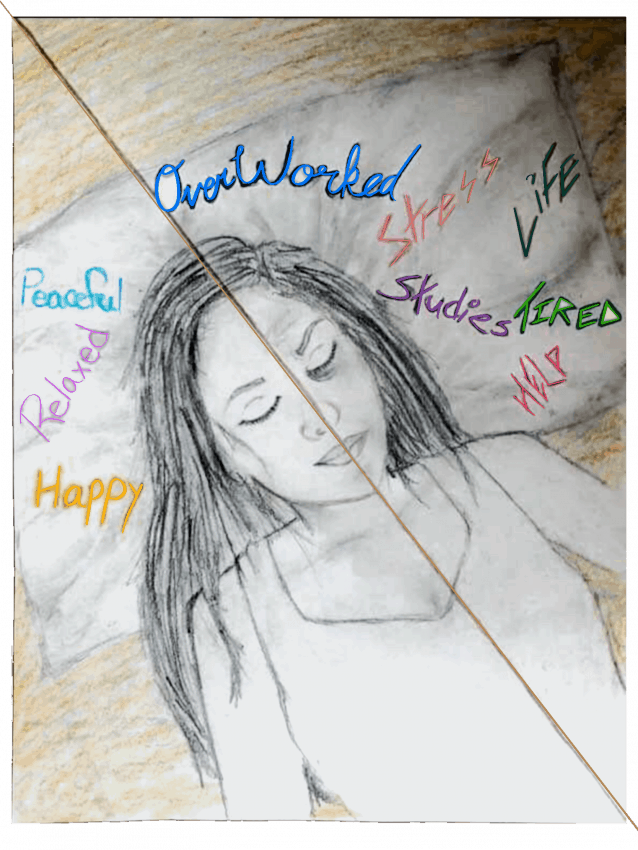
With midterm season in full swing, students are pushing to finish assignments and prepare for tests. Finding a way to balance daily responsibilities with added items on your to-do list is a challenge, not to mention the hope of maintaining some sort of social life.
The truth is, there is never enough time in a day to accomplish what we want. Instead, we have to prioritize, and unfortunately, sleep is often on the chopping block.
Most students can relate to self-induced sleep deprivation that is ingrained in university culture, studying into the early hours of the morning and foregoing the few hours on the pillow altogether. This does not stop once you are out of school with ‘hustle culture’ encouraging more work and little rest as the formula to success. What makes matters worse, this is something that you can often hear being bragged about.
But what does that mean for students today and well beyond the fall term?
Studies show that sleep deprivation is a leading cause of underperformance in classes. Roxanne Prichard, a sleep researcher and professor of neuroscience and psychology at the University of St. Thomas, points out how harmful poor sleeping habits can be.
“Bad sleep is a better predictor of who will and won’t succeed academically than is binge drinking and marijuana use,” said Prichard in her 2014 TEDx Talk.
It has actually been found that the brain starts to show signs of impairment at hour 16 of being awake, and your brain performs as if it was drunk by hour 20. This is caused by a six per cent reduction in glucose reaching the brain, depriving it of the fuel it needs to function properly. Thinking, learning and memory — what school is all about — is closely linked to these glucose levels.
By now, you know that sleep is necessary for the optimal function of your body. It helps to increase energy levels, boost hormone function, speed up metabolism and improves the immune system. For the biology lovers out there, it is the anabolic state to recover from the body-breaking catabolic state. Sleep does wonders for brain function and has been proven to improve memory and learning as that is when memory consolidation occurs.
Simply put, sleep will help students perform better. Without sleep, you are stacking the odds against yourself. Monica E. Hartmann and Prichard conducted a study involving over 55,000 university students. They found that for every night a student did not sleep enough, it showed they were 10 per cent more likely to have their GPA drop by 0.02. Throughout the term, the damage adds up.
Transitioning from immediate consequences to long term, there is a notable concept known as sleep debt. Many students are all too familiar with financial debt — and as it turns out, your body is counting, too.
What that means for students is every time you spend those extra three or four hours past your routine bedtime cramming for that midterm or working on that assignment, you’re adding to a deficit your body cannot easily recover from.
Imagine this: you normally go to bed at around 11:00 p.m. and wake up at 7:00 a.m. Midterm week rolls around again and for the last four nights, you have gone to bed after 1:00 a.m. That is a full three to five hours of deficit every night for four nights. Math is not my strong suit, but I know that could mean up to 20 hours of sleep debt collected over one week.
If this happens consistently without adding those extra hours to sleep soon, people can go into a state of long-term sleep debt or even chronic sleep deprivation. Shawn Stevenson, author of Sleep Smarter, lists the concerns of long-term sleep deprivation as increased risk of heart attack, stroke, diabetes, cancer, obesity, mental illness and all-cause mortality.
Sleep is not as optional as we think. The hours dedicated to hustle culture over our health will catch up with students faster than they think.
The effects of lack of sleep exist now and are working against you. For advocates and experts like Prichard, they are fighting to make sleep education and awareness a priority.
“There is definitely room for improvement in educating students about sleep,” Prichard said.
Now it is your turn. We would like to know about your sleep habits. Are you lacking sleep, and how is that impacting you? Tweet us or send us an email.
—
Alayna Moxness
Graphic: Dia Tarafder
Leave a Reply